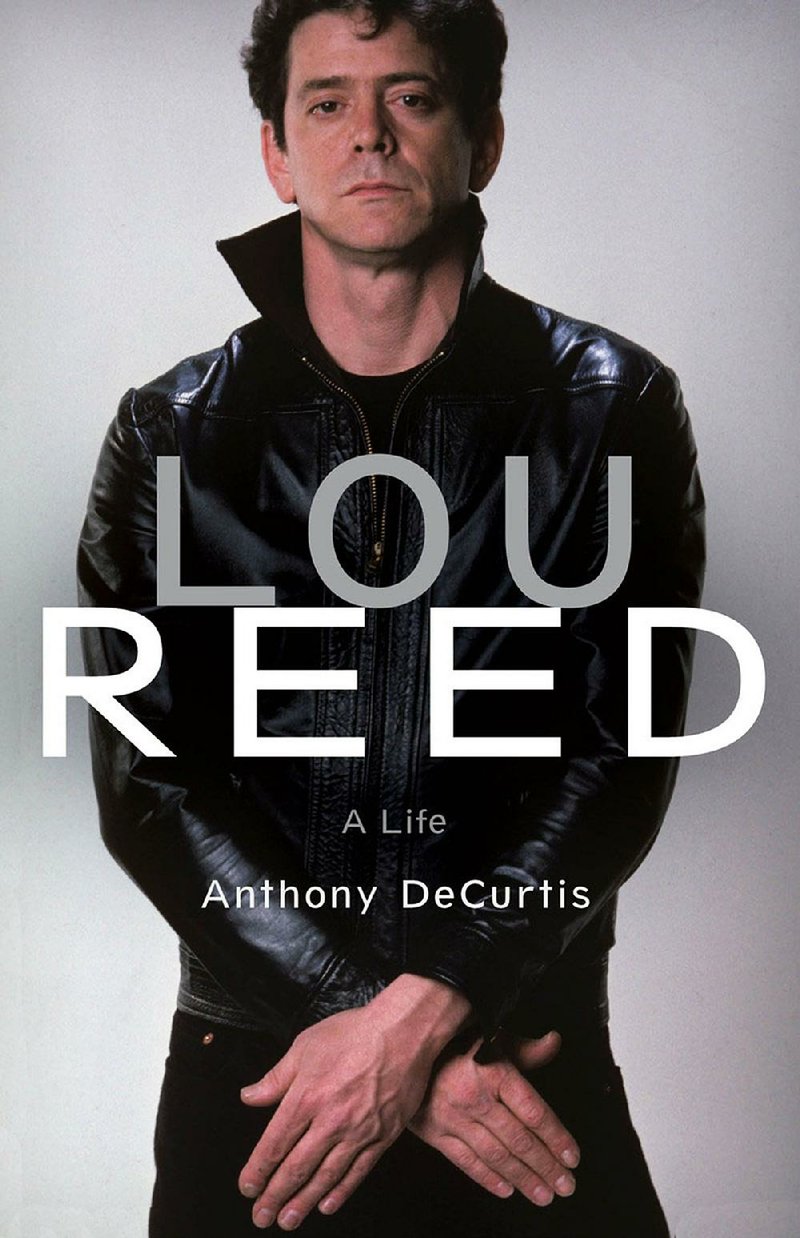Trust the work, not the artist.
Artists dissemble and pose; they pretend to ignorance and unearned depths. They will abuse your ingenuousness. They will make up stories about their lives, they will tell you that they are penniless orphans from Oklahoma while their mother waits curbside at the wheel of the getaway car, while their father covers their rent.
But for all their lying, their work can be true.
My first instinct is to say that Lou Reed deserves something more tawdry than a definitive cleanly typed biography; something rougher and rawer and rattier than a responsible, well-sourced book that depicts him largely as a talented suburban kid from Long Island who disappointed -- and was disappointed in -- his parents.
But here's the thing about Rolling Stone contributing editor Anthony DeCurtis' Lou Reed: A Life (Little, Brown, $32): I don't doubt it. I don't doubt that "Lou Reed" was a persona adopted by a shy, talented kid from a conventional suburban background. Lewis Allan Reed created and curated "Lou Reed," a nasty piece of work who functioned as the literary conscience of the Manhattan demimonde for more than 40 years. I don't doubt that he was a complicated, conflicted man capable of overbearing cruelty and great tenderness. Most of us are that guy.
DeCurtis is perhaps a touch too proud of the cordial relationship he maintained with Reed up until the singer's death in October 2013. DeCurtis suggests Reed would not approve of the book that resulted from that relationship because he was bound to portray Reed not in "the way he wanted to see himself." Such is the transactional nature of most relationships between artists and those who would explain them; give DeCurtis credit for not sensationalizing Reed's kinks and vices. Instead he regards the self-mythologizing skeptically, returning again and again to the idea of Reed as an intelligent operator, who even when beset by depression or stoned on drugs retained a modicum of agency.
Reed was not like his RCA labelmate Elvis Presley, who was manipulated by his management and ultimately trapped by the jump-suited creature they made him into. Reed was always the author of his act, and the Bowie-esque (and Bowie-inspiring) changes he endured were active strategies of self-promotion and artistic aspiration. Reed had something more in mind than stardom, he had a genuine gift for poetry and a primitive but effective manner of attacking an electric guitar. He wanted rock 'n' roll -- which he believed saved his life (see "Rock and Roll," one of the handful of great rock songs written about rock itself) -- to matter in the same ways that Shakespeare's plays and sonnets matter. He wanted to make art that communicated sublimely, that informed the ways we regard ourselves as human beings.
Yet he was also, as DeCurtis notes, a man in full, subject to petty distractions and appetites. Reed's unconventional sexual tastes manifested early, leading his middle-class parents to try to electro-shock away their 17-year-old son's homosexual proclivities. Reed went on to sit at the feet of the ruined poet Delmore Schwartz at Syracuse University and to win the sometimes dubious patronage of Andy Warhol. Most of this story has been told before, but DeCurtis is a careful and balanced writer who relies largely on primary sources. His young Reed is credible if less exciting than the version we encounter in the collected works of Lester Bangs.
This Reed seems forever angling for control, first disengaging from Warhol and girl singer Nico (the Teutonic bombshell many believed the band's raison d'etre), setting the Velvet Underground up in Boston, then ruthlessly pushing out John Cale (and demanding that Sterling Morrison deliver the pink slip). Young impressionable Doug Yule joins the band, the new manager sees more commercial potential with Yule as the frontman, and Reed quits, retreating to his parents' home and a job typing for his father's accounting firm just as the band's fourth album, propelled by "Sweet Jane" and "Rock and Roll," began to make an indelible if tiny mark on the culture.
In truth, Lou Reed wasn't really born until the '70s when he signed with RCA and began to reclaim and recast some of the material he'd recorded with VU. DeCurtis is really good on the music, admitting that the solo debut, 1972's Lou Reed, remains a curiously inert document, that the Bowie-produced Transformer was a breakthrough, and the follow-up -- 1975's notorious Metal Machine Music -- was self-sabotage largely mitigated by the romantic, brilliant Coney Island Baby, which "tapped into the deepest recesses of the human heart, the wish, the belief, the conviction that 'the glory of love/Might see you through.'"
Even-handed, perhaps to a fault, Lou Reed is one for the reference shelf. It may not be what you want, but it's hard to deny its utility. But the real Lou Reed isn't in there -- you have to go to the record collection for that.
Email:
pmartin@arkansasonline.com
blooddirtangels.com
Style on 11/12/2017
